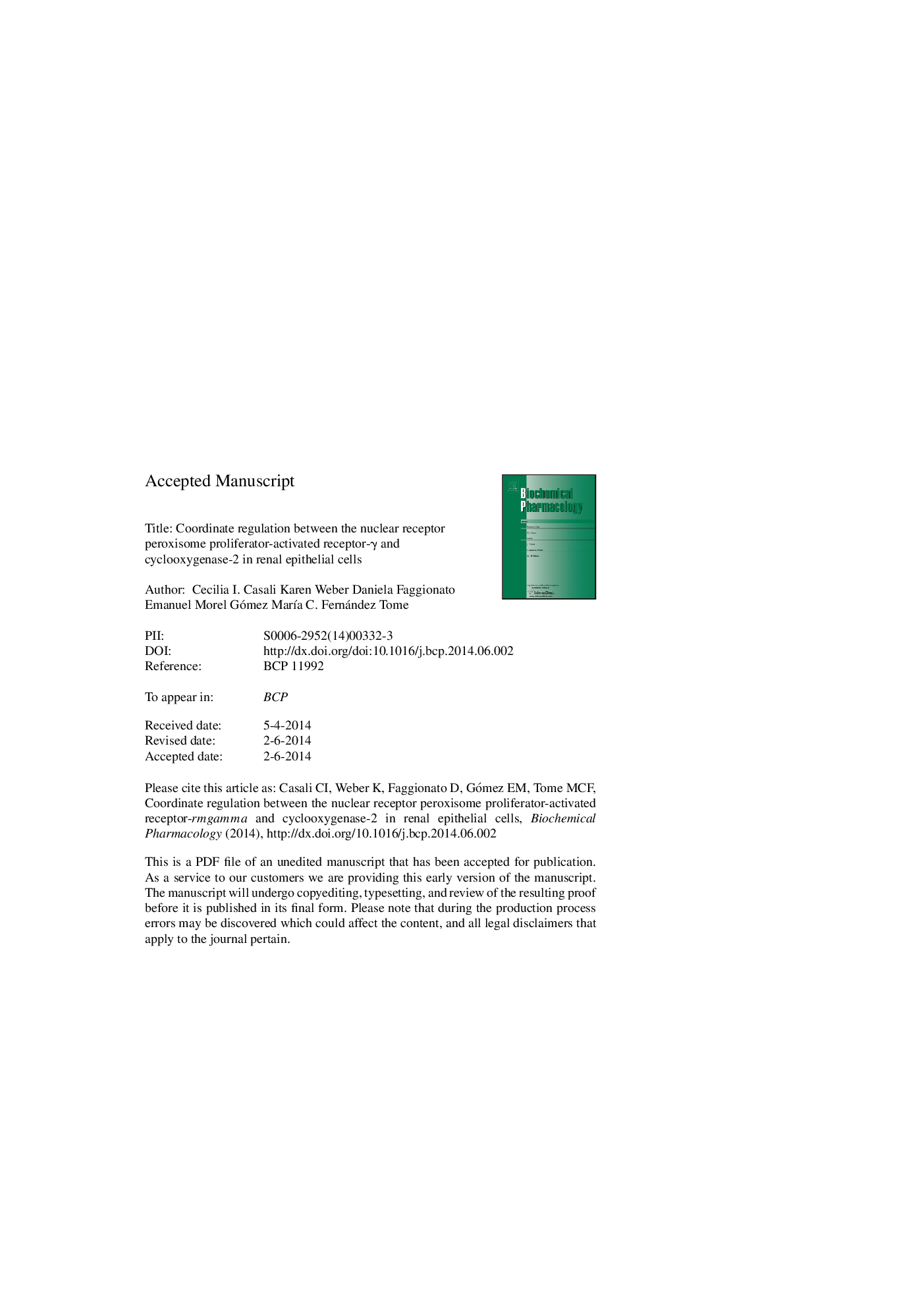| Article ID | Journal | Published Year | Pages | File Type |
|---|---|---|---|---|
| 5823405 | Biochemical Pharmacology | 2014 | 32 Pages |
Abstract
The peroxisome proliferator-activated receptors (PPARs) are ligand-dependent transcription factors involved in lipid metabolism and glucose utilization, in cell growth, differentiation and apoptosis, and in the regulation of pro-inflammatory genes expression such as cyclooxygenase-2 (COX-2). PPARγ is the main isoform in the renal inner medulla where it is believed to possess nephroprotective actions. In this kidney zone, COX-2 acts as an osmoprotective gene and its expression is modulated by changes in interstitial osmolarity. In the present work we evaluated whether hyperosmolar-induced COX-2 expression is modulated by PPARγ in renal epithelial cells MDCK subjected to high NaCl medium. The results presented herein show that ligand-activated PPARγ repressed COX-2 expression. But more important, the present findings show that hyperosmolar medium decreased PPARγ protein and increases the PPARγ phosphorylated form, which is inactive. ERK1/2 and p38 activation precedes PPARγ disappearance and induced-COX-2 expression. Therefore, the decrease in PPARγ expression is required for hyperosmotic induction of COX-2. We also found that PGE2, the main product of COX-2 in MDCK cells, induced these changes in PPARγ protein. Our results may alert on the long term use of thiazolidinediones (TZD) since they could affect renal medullary function that depends on COX-2 for cellular protection against osmotic stress.
Keywords
Related Topics
Health Sciences
Pharmacology, Toxicology and Pharmaceutical Science
Pharmacology
Authors
Cecilia I. Casali, Karen Weber, Daniela Faggionato, Emanuel Morel Gómez, MarÃa C. Fernández Tome,
